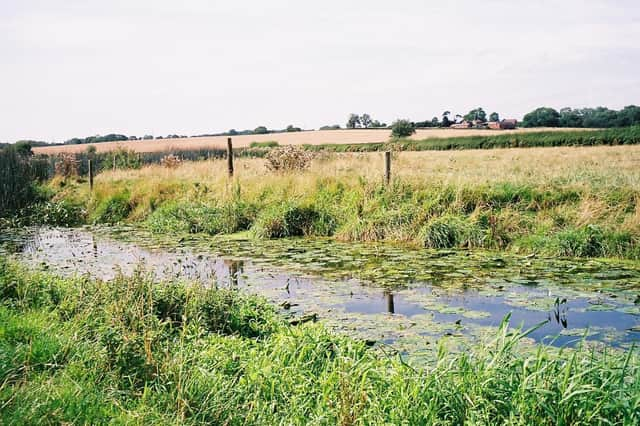Former Advertiser reporter laments the passing of the 'Saturday job'


I read an article in a national newspaper a while back which reported on the decline of what many of us once knew as the ‘Saturday job’.
Readers of a certain age will no doubt readily recall this noble institution with a mixture of emotions, most of them almost certainly positive.
Advertisement
Hide AdAdvertisement
Hide AdIn my own case, there is no doubt that my parents, perhaps tiring of their moody teenage son’s challenging attitude, positively encouraged – if not cajoled – me into filling at least a few of my leisure hours with something more constructive than sulking in my bedroom and wondering if my adolescent face was far too horrendously spotty to unleash at the next session of Churchover youth club.
Wearied by all these parental heavy hints, I therefore decided that farm work would be my best option. Not only would this be healthy, open air labour, but it might also build up the muscles on my then puny physique, which then meant I could also deal with the Lawrence Sheriff School bully who had recently been making my life a misery.
So, one freezing January afternoon, I set off across the meadows to Harborough Fields farm, to see if my ambition could be fulfilled. After ploughing through thick snow – it was the Big Freeze of that notorious 1963 winter - I came across farmer Joe Towers, who was busy mucking out a barn.
I asked him whether he had any work available and, to my delight, said that he could take me on, but not until the spring. Well, the rest is history, as readers of my book Beef Cubes and Burdock will know full well.
Advertisement
Hide AdAdvertisement
Hide AdBut according to this report in the paper, those days would appear to have gone. Teenagers are no longer taking on casual work in the way that they once did, for any number of reasons, not least because they prefer to take ‘gap years’ before going on to university.
Then there are health and safety issues, another cause for concern which undoubtedly must be uppermost in the minds of today’s potential employers.
However, the ‘Saturday job’, as many of us will recall, formed a useful introduction to the future world of work. And wind back the tape 50 or 60 years, and you will find most Rugby youngsters of my generation doing a whole variety of jobs.
Go back several decades, and the casual employment picture in towns like Rugby was far different from what it is today. For a start, there were a lot of smaller firms around in those days, which could - and did - have vacancies for youngsters willing to do a few hours in their spare time.
Advertisement
Hide AdAdvertisement
Hide AdI had friends who worked in all manner of places, from shops to garages, and as in my own case, on farms. There was also seasonal work, such as haymaking and potato picking, which relied on local people to undertake.
Potato picking time arrived around September, the farmer’s ‘man’ knocking on your door beforehand, and asking if you’d be willing to take part for maybe a payment of ten shillings plus a bag of damaged spuds to take home at the end of your shift.
It was a deal. We’d gather in Mace’s yard, climb aboard the trailer, and the tractor would wobble and lurch down Old Yard, and then on to its destination, the top field that lay opposite the Coton Road houses.
We’d each be given a hessian sack, and told to follow the rotavator as it churned up the soil to reveal the golden skinned edible treasures that lay just below the surface.
Advertisement
Hide AdAdvertisement
Hide AdStones would periodically fly past, sometimes perilously, as we went about our work, but no one minded. Neither did anyone bother about occasionally breathing in the thick blue diesel smoke emitted in clouds by that little grey ‘Fergie’ tractor when it turned at the edge of the field.
As the wounded Waterloo soldier so memorably said to the Duke of Wellington, it was all in a day’s work.
How times change. Nowadays, we’ve come to rely on foreign labour to do this kind of work, and health and safety legislation possibly wouldn’t permit the sort of conditions mentioned above.
And anyway, the field to which I’ve referred has now been swallowed up by the M6 and urban Rugby’s relentless advance northwards. Mace’s farm has long gone, too, the buildings converted into housing.
Advertisement
Hide AdAdvertisement
Hide AdElsewhere, there are probably any number of legal reasons why youngsters can no longer perform the work that people of my age group once took for granted.
But part of me also suspects that the will is also lacking in the first place. We have come to expect others to do the jobs that we once fully expected to do ourselves, which is clearly why Britain has been beset by labour shortages in recent times.
If only some of today’s youngsters knew what they were missing. Sadly, many of them never will ever get the chance to find out.
John Phillpott’s book Beef Cubes and Burdock is available from booksellers and on the internet.